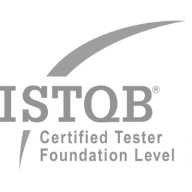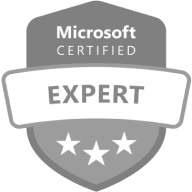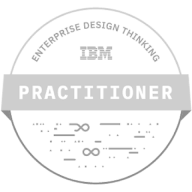
Want to know more? — Subscribe
In the healthcare sector, the decision between "Epic vs Cerner" is pivotal for providers aiming to enhance their EHR systems. Today, EHRs can manage patient information, streamline clinical workflows, and enhance decision-making processes. These systems help enhance the quality of care and patient safety.
A well-chosen EHR can dramatically enhance the quality of patient care, increase operational efficiency, and ensure compliance with evolving regulations. In this context, Epic and Cerner emerge as two of the industry's most prominent and adopted EHR systems. Each system offers unique features and functionalities that cater to different healthcare environments.
With almost a decade of expertise in healthcare, Softermii compares Epic vs Cerner pros and cons, offering organizations essential insights for making informed decisions. This article explores the market presence, interoperability, investment, security, compliance factors, and implementation process of the two most popular EHR systems.
Market Presence and Customer Base
Both Cerner and Epic are major players in the EHR market, and their customer bases differ significantly. Their approaches to partnerships, international expansion, and geographic distribution reveal distinct strategies. Let's explore the unique strengths of each provider and how they meet the diverse needs of the healthcare industry.
Hospital and Clinic Partnerships
Two of the most prominent Electronic Health Records systems have established significant partnerships with hospitals and clinics worldwide. Epic maintains a significant market share, leading in the acquisition of new hospitals and beds. The company has established its strong presence in large healthcare systems. It often partners with academic and pediatric centers. It offers the ability to handle complex medical records and interoperability, making it well-suited for inpatient and ambulatory care settings. Thus, Epic's partnerships can be characterized as an all-in-one approach to patient records and management systems.
Oracle Health (Cerner) demonstrates a versatile portfolio, ranging from large institutions to smaller, community-based clinics. Yet, it is gaining traction among small hospitals but losing market share with larger ones. Its flexibility and scalability appeal to a diverse clientele, including expansive hospitals and independent practices. This diversity reflects Cerner's adaptability to different healthcare settings.
International Reach
Epic and Cerner have expanded their international reach, but their strategies and presence vary. Epic has been selective in its international expansion. The company often focuses on large, prestigious healthcare institutions. Countries like the Netherlands, Singapore, and Australia feature some of Epic's key international clients. This approach emphasizes Epic's appeal to high-end, large-scale health systems.
Cerner's international reach is more widespread, with a presence in over 30 countries. The strategy involves customizing its solutions to match the healthcare system in each region. Cerner is flexible in international healthcare challenges, building a diverse portfolio.
Comparison of Client Types and Sizes
As mentioned earlier, Epic caters to larger, more complex healthcare organizations. Its clients often include multi-hospital systems, academic medical centers, and large specialty practices. This clientele reflects Epic's focus on comprehensive, scalable solutions for high-volume healthcare environments.
Cerner's clientele is more varied in terms of size and type. It also serves mid-sized and smaller hospitals, as well as individual practices. This diversity indicates Cerner's ability to provide scalable solutions across different organization sizes.
Geographic Distribution of Users
Epic's user base is mostly in the US, with a growing but limited international presence. There, Epic dominates in large urban centers and academic hubs. This distribution reflects the company's focus on major healthcare systems.
Cerner shows a more even geographic distribution. In the United States, it is well-represented across various regions, including urban and rural areas. It also has significant user bases in North America, Europe, the Middle East, and Asia. Cerner's user base reflects its global strategy and broader market appeal.
Epic vs Cerner: Interoperability and Integration
The ability of EHRsolutions to communicate and integrate with other systems is crucial. Epic and Cerner, as leading EHRvendors, offer distinct approaches to interoperability. This section explores their data-sharing capabilities and compatibility with other healthcare systems.
Data Sharing Capabilities
Epic facilitates seamless data sharing within its "Care Everywhere" network. It allows for seamless exchange of patient information across different organizations using Epic. The MyChart feature lets patients share their data with providers outside the Epic ecosystem. Thus, the interoperability extends to non-Epic systems, though it is most effective within its network.
Cerner, contrariwise, emphasizes network connectivity through its Health Network. Its solutions can work across different platforms, not limited to its own EHR system. This inclusivity allows Cerner to connect with a wider range of providers, promoting a more unified patient record.
Compatibility with Other Healthcare Systems
Both companies recognize the importance of EHR integration with third-party solutions. Epic allows for integrating different applications and services into its EHR system. Their Connection Hub further enhances this capability. It encourages developers to build and integrate apps directly with the Epic EHR system. Yet, these APIs are usually accessible to a selected network of partners.
Cerner, conversely, has a more open approach towards third-party integrations. It provides a broader scope for external applications to integrate with its system. Thus, it offers greater flexibility and customization options for healthcare providers.
Its strategy in API availability is also more open. Cerner offers a wider range of APIs through its open development platform. The company allows a broader community of developers to build applications that connect with its EHR system. This openness fosters a diverse ecosystem of apps, making Cerner's system more functional and accessible.
Epic or Cerner: Security and Compliance
Epic and Cerner demonstrate strong commitments to security and compliance in their solutions. They each provide high data protection, adhere to regulatory standards, and use advanced security measures. Yet, the specific methods and focuses vary. Let's compare their data protection strategies and compliance with regulatory standards.
Data Protection in EHR
Epic places a strong emphasis on data security within its EHR system. Its comprehensive security model includes the following:
- regular risk assessments;
- stringent access controls;
- continuous monitoring for potential threats.
This method safeguards patient data against unauthorized access, cyber-attacks, and data breaches. The system's robust architecture consistently upholds the integrity and confidentiality of data.
Cerner's approach to data protection is more focused on compliance standards. The company adheres to international and national regulations for data security, keeping its systems current with the latest requirements. Cerner's compliance framework includes:
- regular audits;
- compliance training for staff;
- a strong emphasis on maintaining the privacy and security of information within the patient portal.
This comprehensive compliance approach helps reinforce trust among its users and patients.
Meeting HIPAA and Other Regulations
Both companies place a high emphasis on regulatory adherence, particularly with HIPAA in the United States. They ensure that their systems follow privacy and security rules that dictate the use and disclosure of Protected Health Information (PHI). This adherence is critical in maintaining the trust of healthcare providers and patients.
Audit Trails and Data Encryption
A key component of regulatory adherence is implementing audit trails and data encryption. Epic and Cerner's audit trails provide a detailed log of all access and actions taken within their systems. This feature is critical for monitoring and detecting any suspicious behavior.
Both EHRproviders also use strong encryption technologies to secure patient data. This encryption applies to data stored within their systems (data at rest) and transmitted between systems (data in transit). It ensures comprehensive protection against interception and unauthorized access.
Cost and Investment Analysis
The financial implications of implementing an EHR solution, including considerations for revenue cycle management, are a critical consideration for many organizations. Epic and Cerner have distinct pricing models and implications for return on investment. This section analyzed their pricing structures, including initial investment and long-term cost benefits. It also evaluates the ROI by exploring the financial impact and comparing cost-effectiveness.
Pricing Models of Epic and Cerner
The initial investment in Epic's EHR system tends to be higher. This is attributed to its customized solutions primarily aimed at larger healthcare organizations. The cost includes software licensing, implementation, and customization. Epic's sophisticated infrastructure and need for specialized training may contribute to its higher upfront costs.
Despite that, Epic's EHR system can offer significant long-term benefits. Its efficient data management and operational improvements can lead to operational savings. Also, Epic's data analytics capabilities can help in strategic planning and resource optimization.
Cerner's launch cost depends on the scale and specific needs of the organization. Generally, Cerner offers a more flexible pricing structure. It can be beneficial for smaller organizations or those with limited budgets. The costs include software licensing, implementation, and any required hardware, similar to Epic, but at a lower scale.
Cerner also offers long-term cost benefits, particularly through its adaptable and scalable solutions. The system can grow and change with the healthcare organization, reducing future costs related to system upgrades. The system's operations and data management efficiency can also contribute to cost savings over time.
Return on Investment
The ROI for Epic's EHR system can be significant, especially for large organizations using its advanced features. Its key benefits over time often include:
- enhanced system efficiency in operations;
- reduction in medical errors;
- improved patient care.
Yet, the high initial cost for Epic integration can mean a longer period before a positive ROI is realized.
For Cerner, the ROI analysis includes:
- assessing cost savings from improved clinical workflows;
- reducing administrative burdens;
- enhancing resource usage.
The adaptability of Cerner's system to various healthcare settings can lead to a more immediate financial impact.
Comparing Cost-effectiveness
In comparing the cost-effectiveness of Epic vs Cerner pros and cons, consider the needs and scale of the specific organization:
- Epic may be more profitable for large institutions that can fully use its extensive functionalities.
- Given its flexible and scalable solutions, Cerner could be more budget-friendly for smaller to medium-sized companies.
The following table breaks down the discussed aspects to help with decision-making:
|
Aspect |
Epic |
Cerner |
|---|---|---|
|
Initial Investment |
|
|
|
Long-term Cost Benefits |
|
|
|
Return on Investment (ROI) |
|
|
|
Comparing Cost-effectiveness |
|
|

|
||
Implementation Process: Cerner vs Epic
The implementation of an EHR system remains a critical process for healthcare organizations. Needless to say, the approach to this procedure differs between Epic and Cerner. This section compares two specific approaches, focusing on methodologies, timeframe, and resource requirements.
Epic Implementation Approach
Epic's integration process is known for being comprehensive and detail-oriented. It involves extensive collaboration between Epic's implementation team and the clinic's staff. Epic focuses on a thorough understanding of the company's workflows to ensure that the EHR system fits their needs. Training and support are integral parts of Epic's implementation process. They ensure that the staff is well-equipped to use the system effectively.
The timeframe for implementing Epic's EHR system can be lengthy, especially for larger organizations. It can take several months to over a year, depending on the complexity and scope of the project.
This process also demands large staffing, financial investment, and IT infrastructure resources. Organizations must be prepared to dedicate a team to work closely with Epic's consultants to build an EHR system. They also need to ensure their IT infrastructure can support the solution.
Cerner Implementation Approach
Cerner adopts a more modular and flexible technique. Organizations can phase in different components of the EHR system based on their priorities and readiness. This flexibility benefits smaller practices or those looking to upgrade their systems inch by inch. The company provides guidance and support throughout the entire process. The degree of involvement and customization can be adjusted based on the client's needs and resources.
Cerner's implementation timeframe is generally considered to be more flexible than Epic's. It can be shorter for smaller organizations or longer for more complex installations. The process requires more manageable resource commitment compared to Epic. Organizations need to:
- allocate staff for training and collaboration with Cerner's team;
- budget for the various stages of implementation;
- ensure their IT infrastructure is compatible with Cerner's solutions.
Epic or Cerner: Customer Support
An integral component of any Electronic Health Records system is the customer support offered by the company. Both providers are dedicated to delivering high-quality customer service, education, and customized solutions. This section will now compare Epic vs Cerner pros and cons regarding their customer support.
Response Times and Availability
Epic is known for its 24/7 customer support with generally quick response times. They offer a variety of support channels, including:
- direct phone lines;
- email support;
- online portal for their clients.
The availability of support is usually high, especially for critical issues, with dedicated teams to address specific problems. Yet, some clients have noted that the response can sometimes be slower for less urgent issues.
Cerner also offers comprehensive customer support with a strong emphasis on availability. Like Epic, they provide 24/7 service, accommodating the needs of providers operating in different time zones and settings. They likewise offer support via phone, email, and online support systems. Cerner is known for its proactive approach to monitoring systems. They often address problems before the client even becomes aware of them.
Training and Educational Resources
Epic's extensive training programs are considered one of the strengths of their customer support. The company offers on-site training, online courses, and user forums. They also focus on ensuring users are proficient in using their system.
Cerner also provides a range of training and educational resources to its customers. Cerner's training is designed to be flexible and adaptable to the diverse needs of different institutions. They also provide ongoing educational resources to help users stay updated with new features and best practices.
Customization and Personalization
Epic offers a high level of customization in its support, which is considered one of its strengths. The company works closely with clients to grasp their unique challenges. They also provide personalized support to address these issues. This customization can be extensive but may require extra time and resource investments.
Cerner is also committed to addressing unique customer needs through customization. They offer a range of personalization options within their system. This way, clients can adapt the software to their specific operational requirements. Its flexibility can often be useful for organizations seeking less extensive customizations.
Epic vs Cerner: Which EHR to Choose?
In wrapping up the Epic or Cerner comparison, it's evident that each software has unique strengths and specialties. Thus, the choice between them depends on a hospital's specific needs and circumstances.
Epic remains a leading option for larger healthcare systems. It offers a comprehensive solution with a strong emphasis on interoperability. Its approach to security is highly structured, and its customer support is known for efficiency and thorough training programs. However, it also comes with a higher initial investment.
Cerner, in contrast, offers flexibility and a broader range of options suitable for various settings. Its strength lies in a more open approach to third-party integrations and network connectivity. Its scalable solution might also be more accessible for smaller to medium-sized organizations.
The choice between Epic or Cerner should be guided by factors such as:
- the size and type of the healthcare organization;
- the required scale of implementation;
- budget constraints;
- specific operational needs.
Providers should consider their long-term goals and how the chosen EHR system can adapt to future trends and advancements.
If you're looking for expert advice to make the best decision for your organization, get in touch with Softermii. Our dedicated team is ready to offer insights and support tailored to your needs. Drop us a line to explore how we can assist you in optimizing your healthcare technology solutions.
Frequently Asked Questions
What is the difference between Cerner and Epic?
The main difference lies in their target clientele, system capabilities, and implementation approach. Larger healthcare organizations often prefer Epic due to its comprehensive features and interoperability within its network. Cerner offers flexibility and can adapt to various companies, including smaller practices. Epic tends to have higher initial costs, while Cerner offers more variable pricing.
What are the disadvantages of Cerner?
Cerner may have a complex user interface, and its various functions could take some time to learn. Some users report challenges in customization and navigating through the system's extensive features. Additionally, its flexibility can sometimes lead to a lack of consistency in user experience across different organizations.
What are the disadvantages of the Epic system?
The primary disadvantages of Epic include its high initial cost and resource-intensive implementation. The system's comprehensive nature requires significant training and adjustment time. Epic offers interoperability within its network, but integration with external systems can be less straightforward.
Why do hospitals choose Epic?
Hospitals often choose Epic for:
- its extensive functionality;
- robust data management capabilities;
- strong interoperability within its network.
This system is well-suited for complex clinics and is known for enhancing operational efficiency.
Why do organizations choose Cerner?
Organizations choose Cerner for its flexibility, scalability, and various customizable options. Cerner's system is adaptable to both large hospitals and smaller practices. This is an appealing option for companies seeking a customizable and scalable solution. Cerner's commitment to interoperability and ease of integration with other systems is another significant factor.
How about to rate this article?
1 ratings • Avg 5 / 5
Written by:










